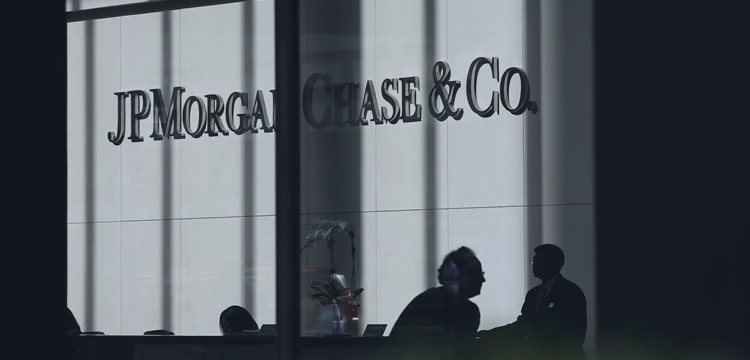
JPMorgan: Next crisis could see 'more volatile' markets and 'rapid decline in valuations'
In an annual letter to shareholders, Jamie Dimon, chief executive of JPMorgan Chase, reflected upon what might happen in the next crisis warning that the ability of JPMorgan and other banks to act as shock absorbers had been hampered by new capital and liquidity rules.
Mr Dimon has been known as one of the few bank chief executives willing to challenge the regulatory architecture put in place since the 2008 crisis. In his letter, he pointed out that because regulators have hamstrung the banks, the next financial crisis should see “more volatile” markets and a “rapid decline in valuations”.
Unlike in 2008 when JPMorgan attracted $100bn of
deposits from weaker competitors, it was “unlikely that we would want to
accept new deposits the next time around”, Dimon said.
While investors would traditionally flock to safe-haven
securities in a storm, there would be “a greatly reduced supply of
Treasuries to go around — in effect, there may be a shortage of all
forms of good collateral” because of new liquidity requirements tying up
safe assets at banks.
While banks underwrote stock offerings to help other banks
during the last crisis, they “might be reluctant to do this
again”, Dimon said adding that non-bank lenders, which have taken over parts of
the market previously occupied by banks, would “not continue rolling
over loans or extending new credit except at exorbitant prices that take
advantage of the crisis situation”.
In his opinion, however, hedge funds would step in and buy assets at some point, as could the government do. Funds including BlueMountain Capital Management have established long-term funds for precisely this sort of event, says the Financial Times.
JPMorgan’s clashes with regulators in recent years have included
mis-selling mortgage-backed securities, the “London whale” trading
fiasco, and allegations of manipulating foreign exchange markets.
Mr Dimon wrote the bank's stock performance has not been particularly good in
the last five years blaming uncertainty over legal and regulatory
costs.
Lingering uncertainty over the final capital levels to be demanded by the Federal Reserve meant it was “understandable that people would pay less for our earnings than they otherwise might pay” adding that, in fact, when "Mr Market gets very moody and depressed, we think it might be a good time to buy back stock.”
Mr Dimon had thoughts on expansion, adding that he would continue to enter new markets in the US, with “surprise” retail bank openings in 2016.
JPMorgan was “going to do a better job covering family and private offices”, he said, and was going to be “very aggressive” in expanding its payments business.


